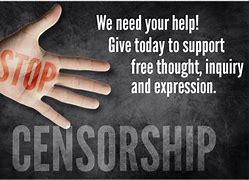Entertaining as they are, court pratfalls were the exception. Mr Berkowitz stresses that suppression had the upper hand until recently. Free speech’s most eloquent modern champion, John Stuart Mill, published “On Liberty” in 1859; but in Europe and America state censorship weakened only in the 1950s to 60s. Then and at other times, the law responded to public opinion. That is the second, indirect means by which speech may be silenced—or freed. Pressure may come from the majority view or (as now) from the sensitivities of ethnoreligious minorities.
尽管法庭上的胡闹很有趣,但却只是例外。伯克维茨强调,对言论自由的压制直到最近才占据上风。约翰·斯图尔特·穆勒是言论自由最有说服力的现代拥护者,他在1859年出版了《论自由》;但欧洲和美国的国家审查制度只在20世纪50到60年代才有所削弱。法律在后来和其他时候都对公众舆论作出了回应。这是第二种方式,也是间接实现压制声音或言论自由的方式。压力可能来自大多数人的观点,也可能来自少数民族的敏感性(如现在)。
In America, where the First Amendment bars the government from limiting speech save on exceptional grounds, courts have tended to strike down post-1945 laws controlling “hate speech”. In Europe, by contrast, such laws are common and accepted even by free-speech liberals. Thus American courts are often said to be more “absolutist” about free expression. Mr Berkowitz corrects that half-truth, noting that American courts have upheld speech bans on pacifists in wartime and communists during the cold war.
在美国,第一修正案禁止政府以特殊理由限制言论,法院倾向于废除1945年后规制“仇恨言论”的法律。相比之下,在欧洲,这样的法律很普遍,甚至为支持言论自由的人所接受。因此,人们常说美国法院对言论自由更为“绝对”。伯克维茨先生纠正了这种半真半假的陈述,并指出,美国法院支持对战时和平主义者和冷战时期共产党人的言论禁令。

Another indirect control turns on opportunities to speak. Even if all should be free to do so, must everyone be given a platform, a newspaper, an audience? To approach the question differently, does the gatekeeping power of media and web giants distort public argument?
另一种间接控制则是利用了人们说话的机会。即使所有人都应该拥有言论自由的权利,难道每个人都必须有一个平台、一份报纸、或一个观众吗?换个角度来看,媒体和网络巨头的把关能力是否扭曲了公众的观点?
Governments have stepped in at times to make the giants share their megaphones and refrained from interfering at others. Recently American regulators and courts have favoured the giants. Requirements for fairness in political broadcasting were dropped in the 1980s. A law of 1996 deemed web providers not to be publishers, hence protected from civil suits over material posted. The Supreme Court ruled in 2010 that corporations enjoy free-speech protection, making limits on political spending, among other things, harder to enforce. Different social silencers, those now called no-platforming and “cancel culture”, make up in stridency what they lack in formal clout (though Mr Berkowitz thinks their significance is exaggerated).
各国政府有时会介入,让这些巨头共用传声筒,并避免干涉他人。最近,美国监管机构和法院大力支持这些巨头。对政治广播公平性的要求在20世纪80年代被取消。1996年的一项法律认为网络供应商不是出版商,因此免于因发布材料而被提起民事诉讼。最高法院在2010年裁定,公司享有言论自由保护,使得限制政治支出等更难执行。不同的社会消音器,现在被称为“拒绝提供平台”和“取消文化”,强势地弥补了他们在正式影响力上的不足(尽管伯克维茨认为他们的意义被夸大了)。
Without always diving deep or giving clear answers, “Dangerous Ideas” shows that conflicts between free speech and censorship are rarely simple or settled for long. Above all, Mr Berkowitz grasps how quarrels over free speech are often, at bottom, fights for control of the argument.
《危险的思想》并未总是深究或给出明确答案,它表明言论自由和审查制度之间的冲突很少是简单的,也不会长久解决。最重要的是,伯克维茨明白,围绕言论自由的争吵,归根结底,往往是为了争夺论辩的控制权。
译文由可可原创,仅供学习交流使用,未经许可请勿转载。












